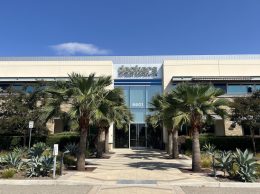Dubroff: Rising stock market fuels changes for tri-county companies

Henry Dubroff
Conventional wisdom holds there’s not much correlation between a short-term jump in stock prices and impact on the real economy.
But this time may be different. It may mark a rare moment when developments on Wall Street have a profound impact on what happens along the Highway 101 corridor.
Three announcements made during an eight hour stretch on April 25 show how the bullish streaks that marked the first 100 days of the Trump administration are affecting our everyday business lives. The sale of Ventura County’s last independent bank, Dole Food’s $100 million IPO filing, and the possible sale of Deckers Brands all put big changes on the table for the economy and they all tie back to the market rally.
The rising stock market, and expectations the Federal Reserve will continue to raise short-term interest rates have given bank stocks a lift, fueling consolidation, particularly in all-stock transactions. That’s what happened in our first deal, the sale of Ojai Community Bancorp, which has agreed to a sale to Bank of the Sierra, based in Porterville.
Bank of the Sierra is paying $14 per share, a better than 50 percent premium to Ojai Community’s pre-deal stock price.
The all-stock deal will be very favorable to Ojai Community shareholders who will be able to roll their stock into Bank of the Sierra without paying capital gains taxes. And Bank of the Sierra cleverly will be able to build out its branch network along the Central Coast without having to use cash.
But the deal represents a watershed in banking, which for a century has seen a cycle of mergers followed by a new cycle of de novo startups. It’s hard to imagine a new bank startup today – capital requirements would be perhaps $50 million or more, regulatory burdens would be enormous and growth prospects would be limited. The future seems to belong to larger, regional banks and not smaller banks rooted in a single community – that’s a shift with big implications for local economies.
Rising stock prices have produced a wave of mergers, which in turn has depleted the ranks of publicly traded companies. Enter 94-year-old David Murdock who just three years ago took advantage of super-low interest rates to take his flagship Dole Food private. Murdock recently lost a court battle over the final price to be paid for that go-private transaction, but that has not deterred the fruit and vegetable magnate from taking Dole public again.
Dole, whose Westlake Village headquarters sits next to the Murdock-owned Four Seasons Hotel, is not a sexy startup. But it does have a better grasp on its food sourcing and it has cleverly moved into packaged foods where profit margins are better. The market’s hunger for new issues has given Murdock a chance to grab $100 million or more in cash, reduce debt and perhaps set the stage for a future all-stock merger that would save a bundle in future estate taxes.
A rising tide does lift all the boats but in the stock market they don’t all rise at the same rate. Deckers Brands, the Goleta-based parent of Ugg, has been trailing in a rally that’s seen a handful of growth stocks soar or sell out. Under Chairman Angel Martinez and CEO Dave Powers, the company has been restructuring and working to adapt to a new world of online shopping and retail disruption. But in the brave new world of hedge funds and private equity, strategic thinking often finishes second to short-term stock price performance.
After a very public prodding by a shareholder who owns around 3 percent of Deckers shares, the company has hired an investment banker and a law firm to pursue a restructuring or a sale. The sale of Deckers would send a shock wave through the corporate ranks of the region and it would put several hundred well-paying jobs in design, branding and management at risk.
A Deckers sale could be a throwback to the corporate raider era of the 1980s, where an outside firm upends a local community through financial engineering. But it also spawned a new generation of footwear startups in the region.
The bottom line is that markets are powerful forces and they are very dynamic. The events of April 25 underscore just how impactful those forces can be.
• Reach Editor Henry Dubroff at [email protected].











